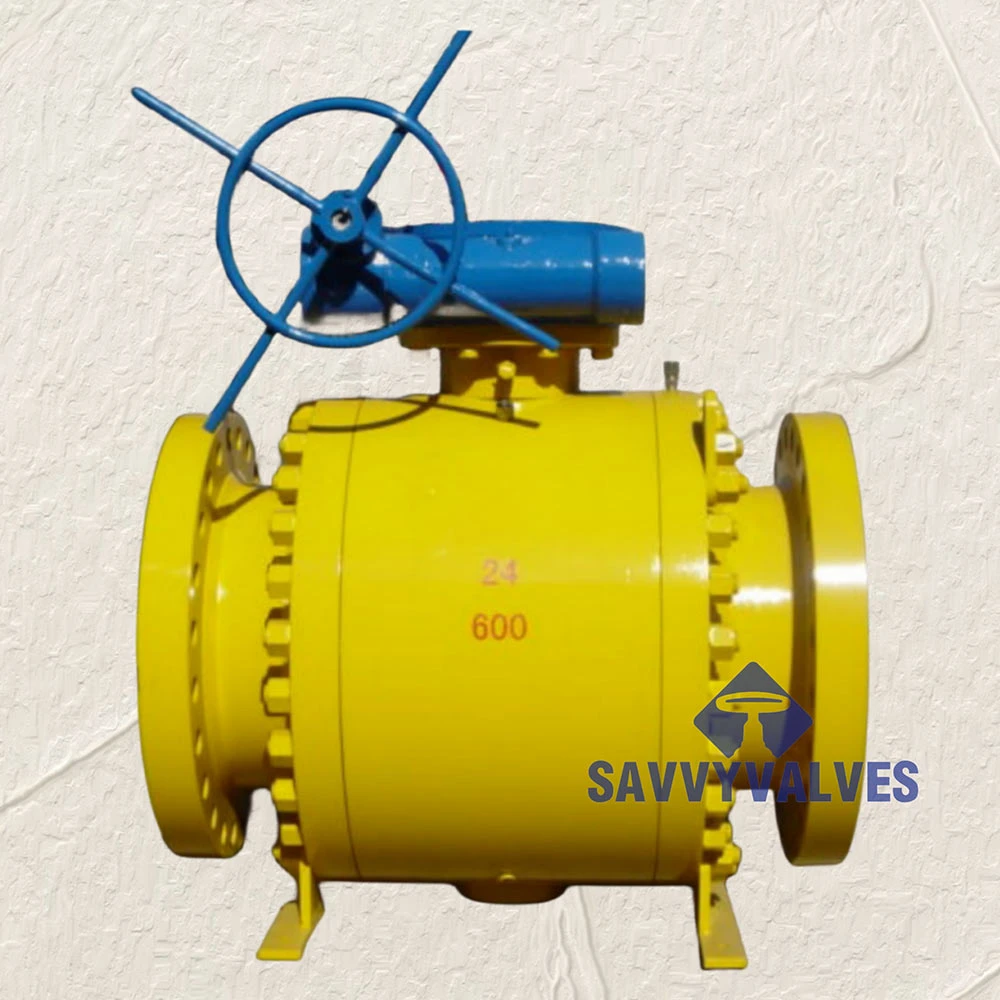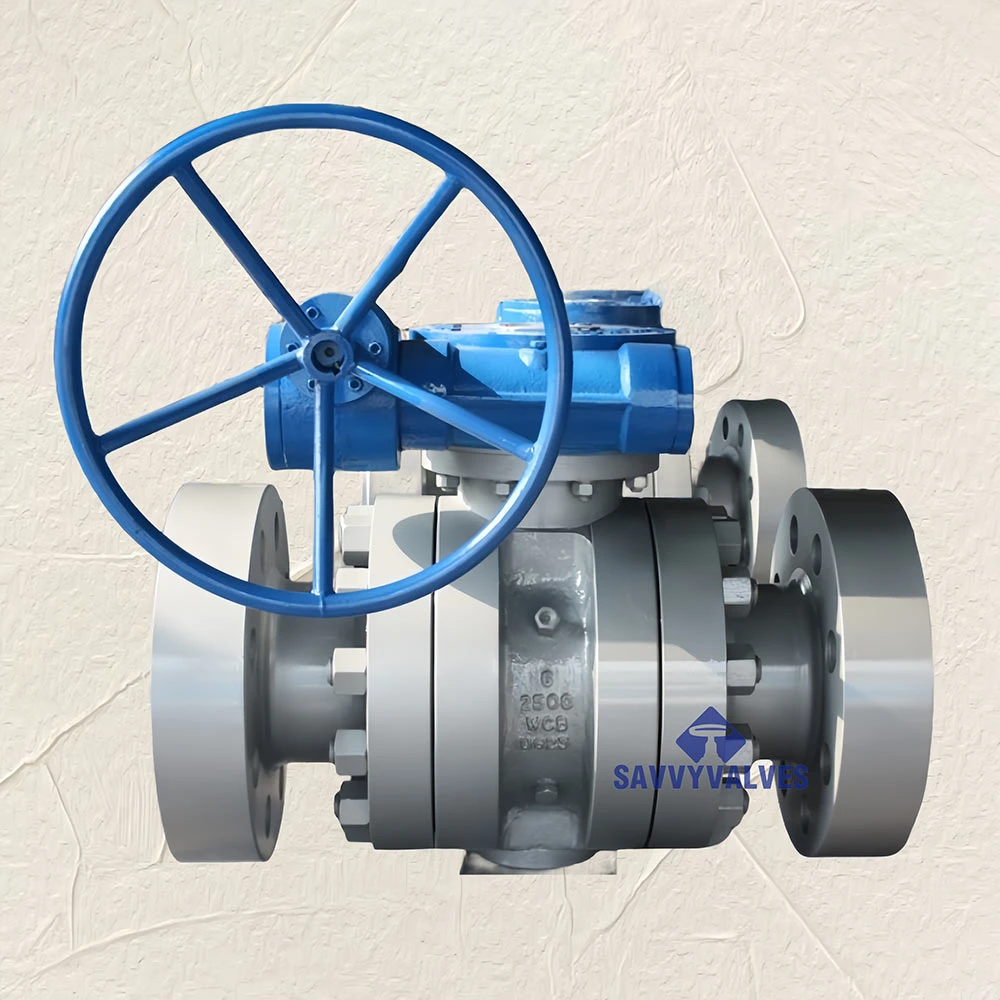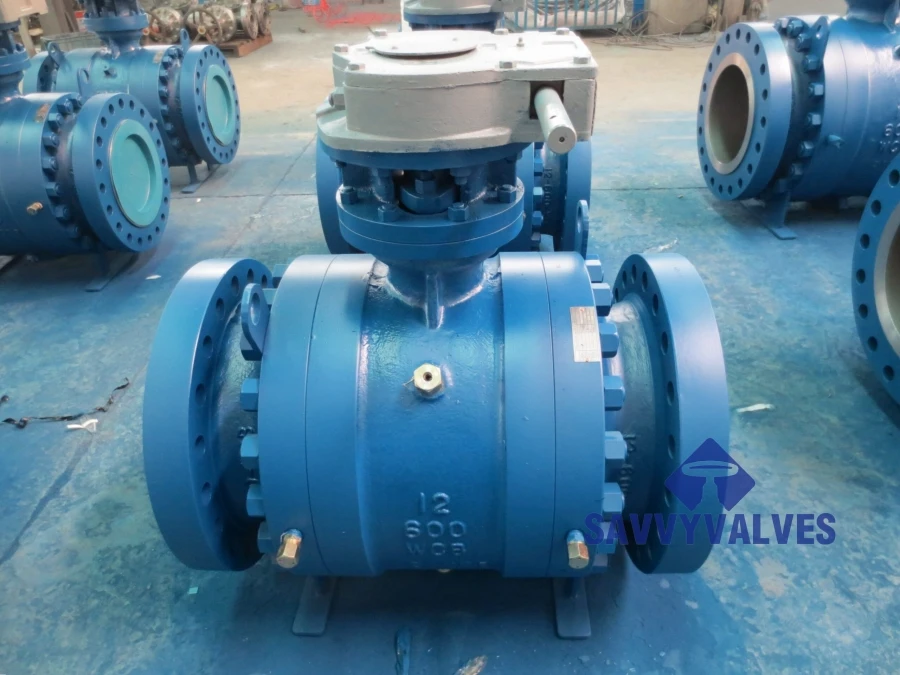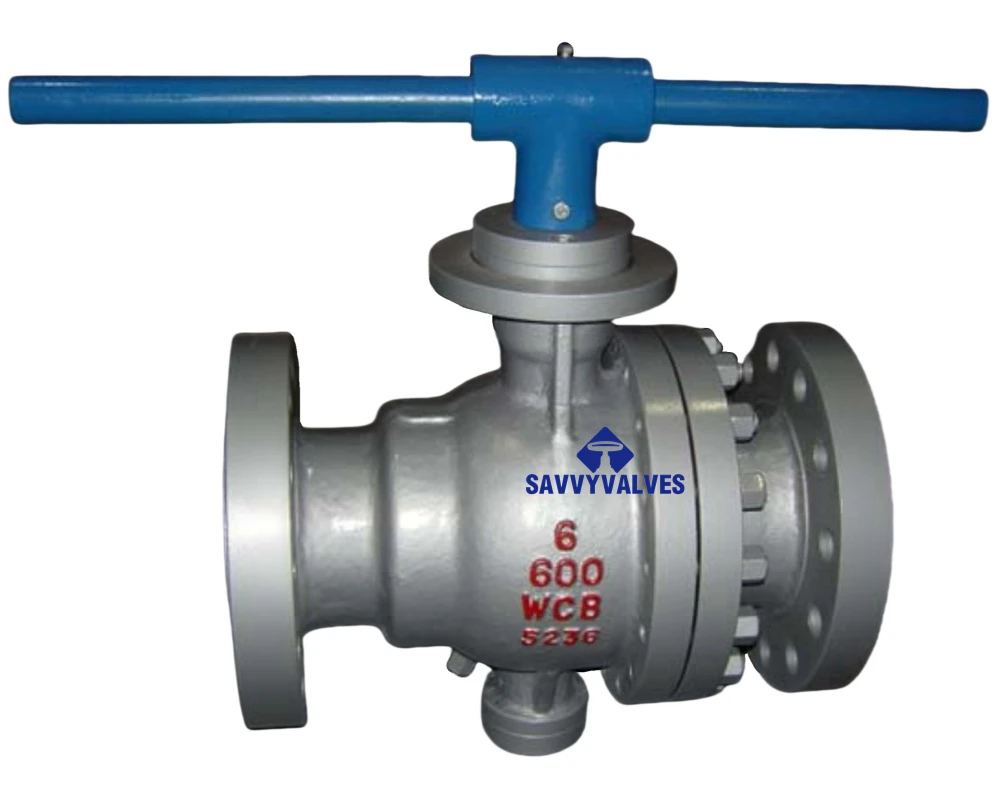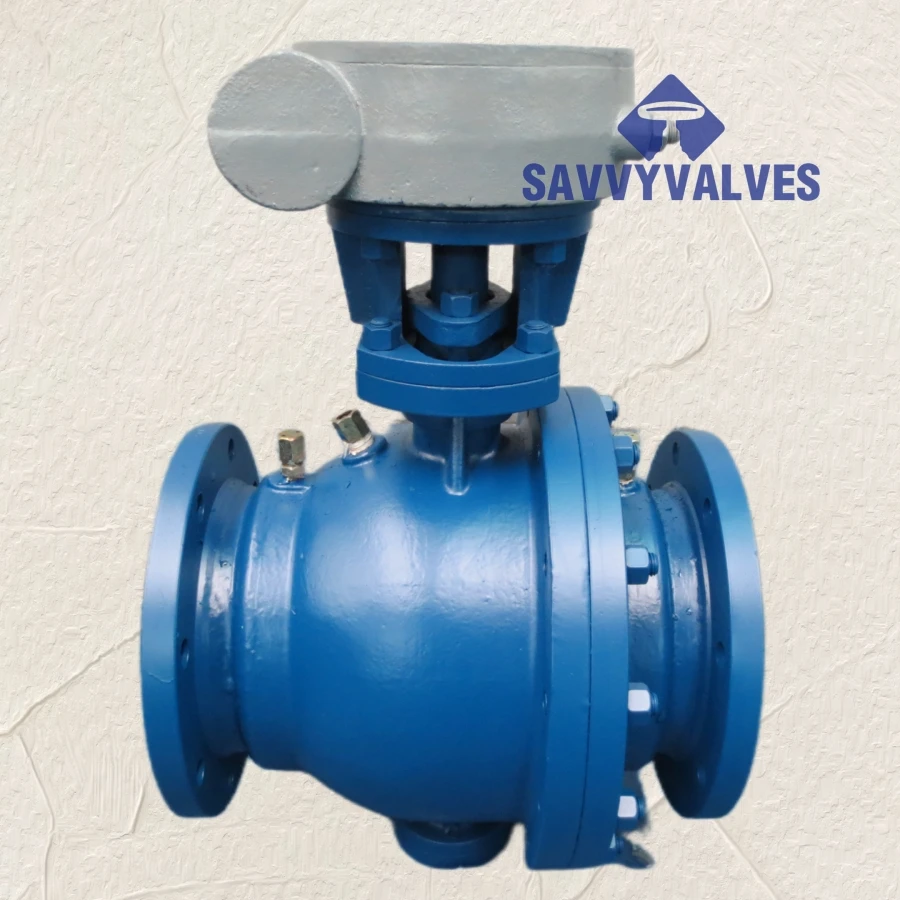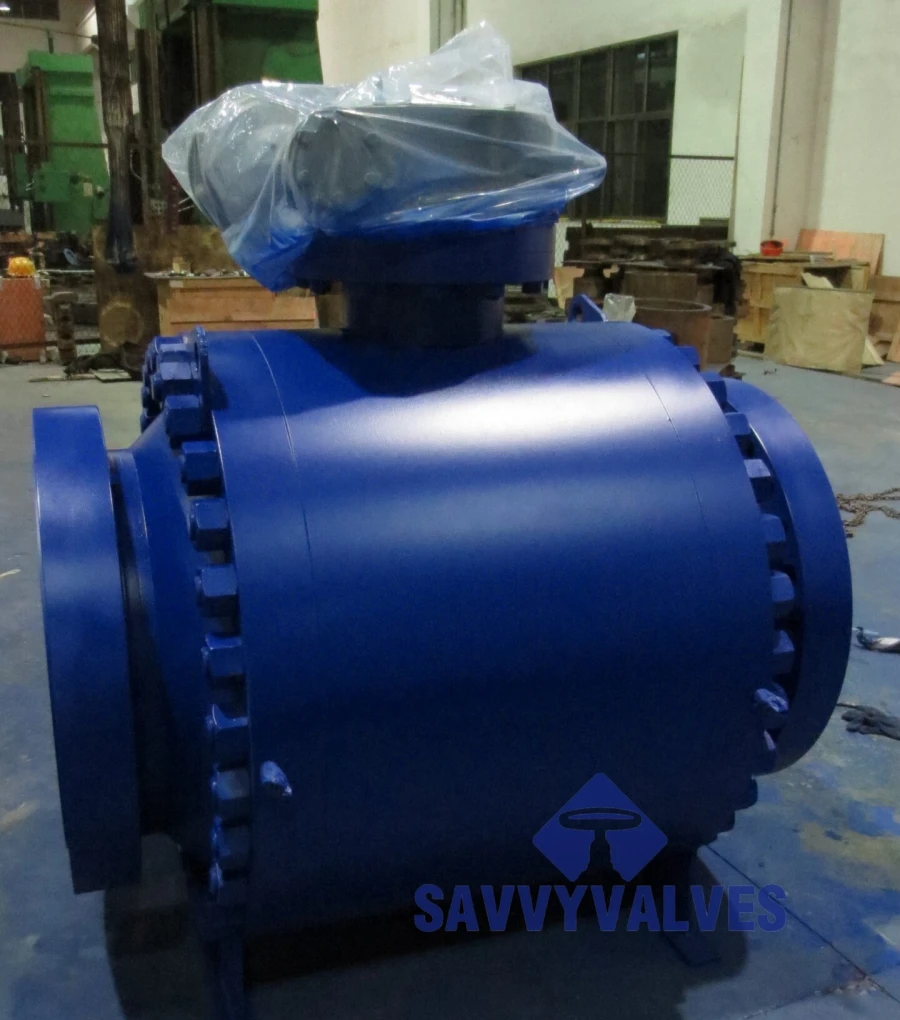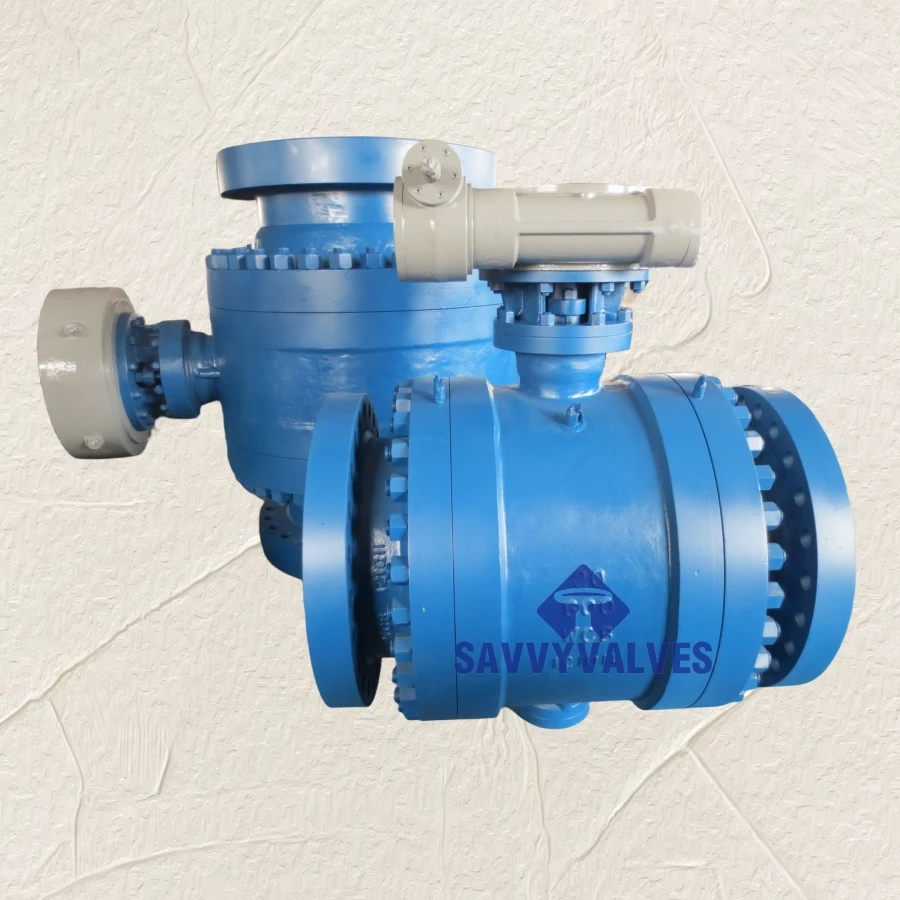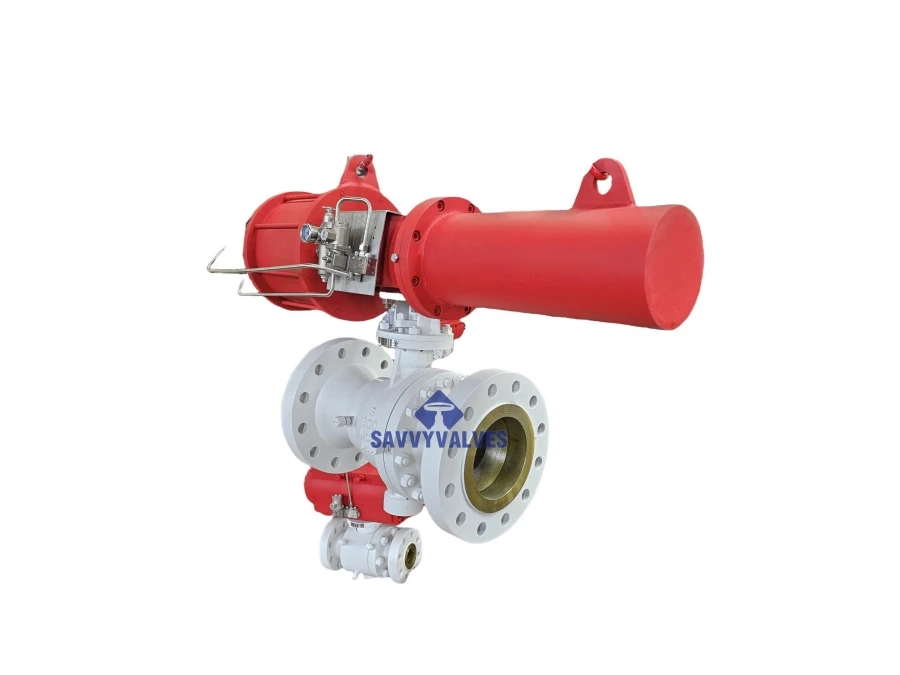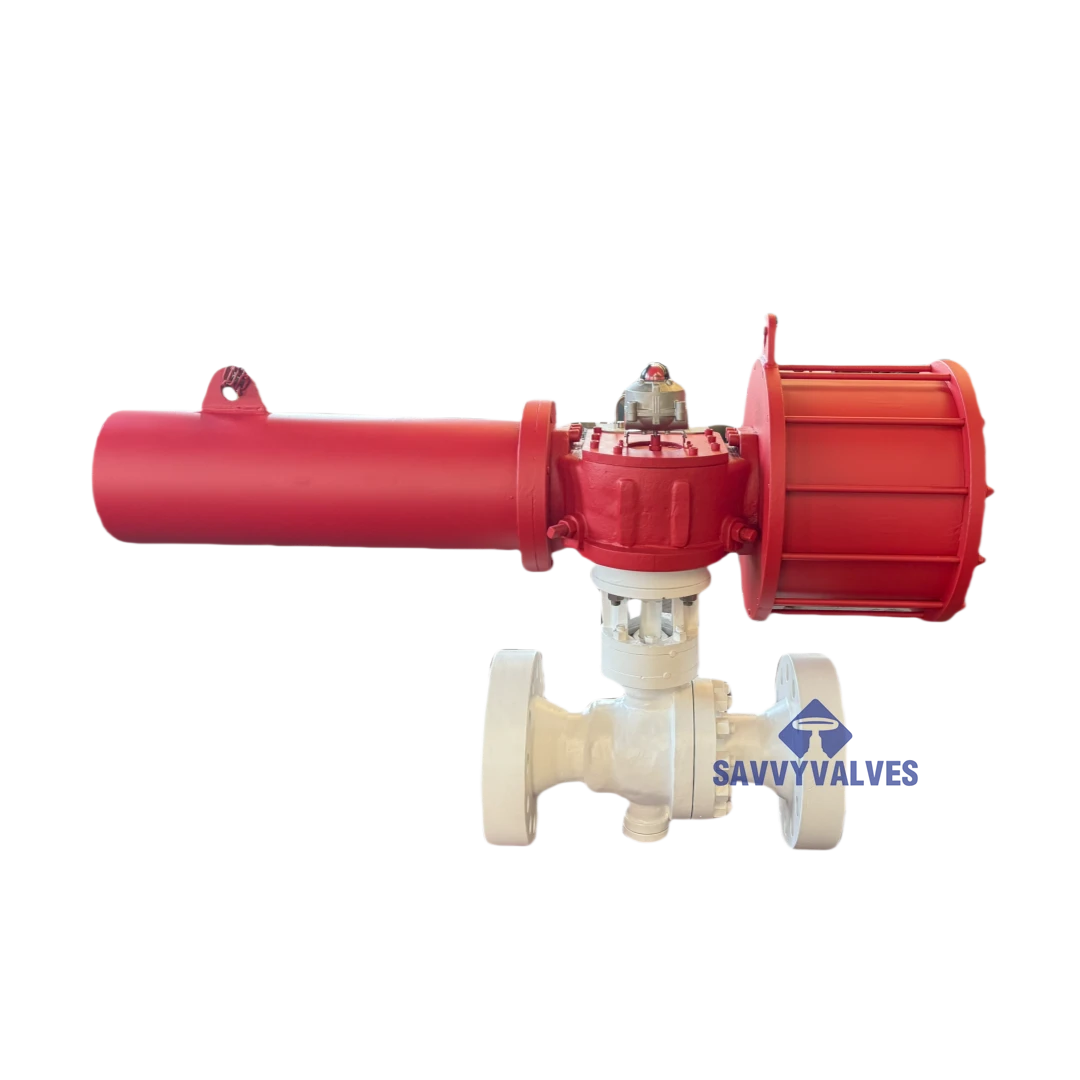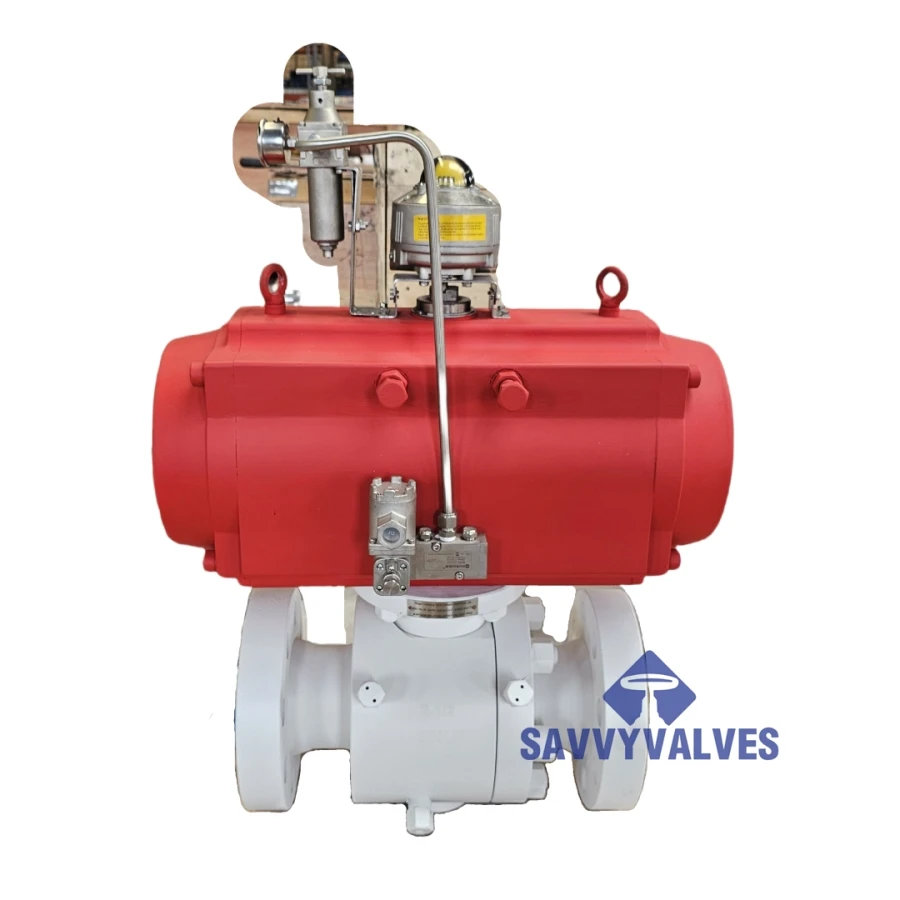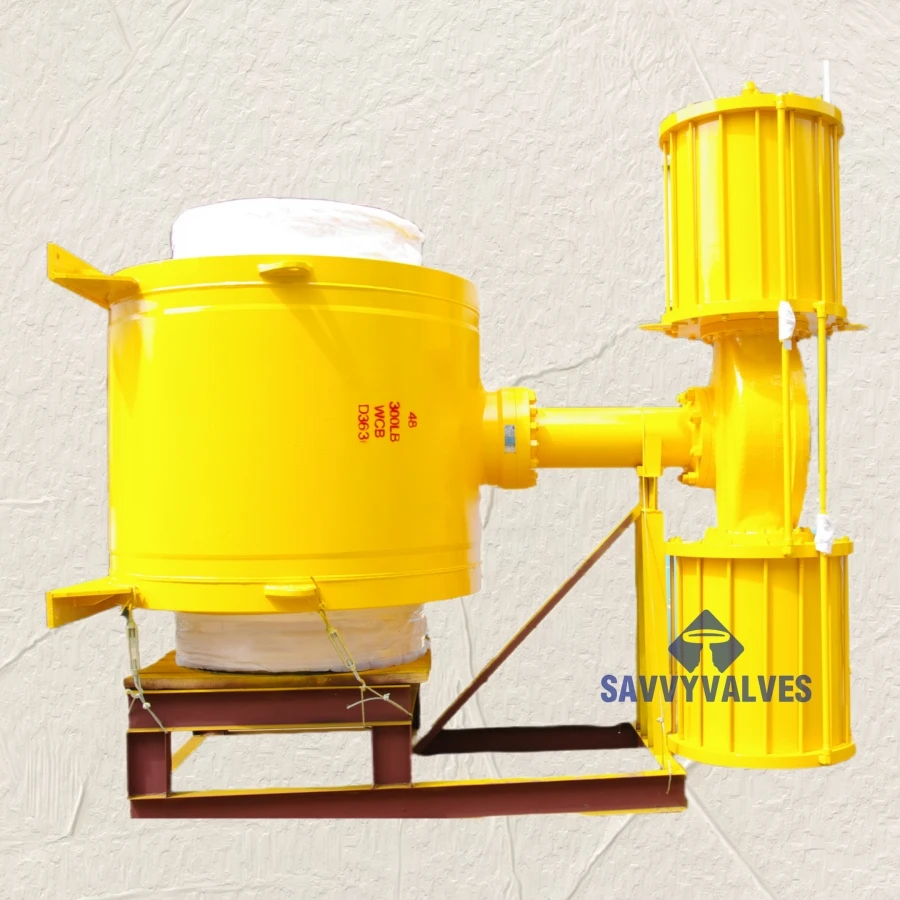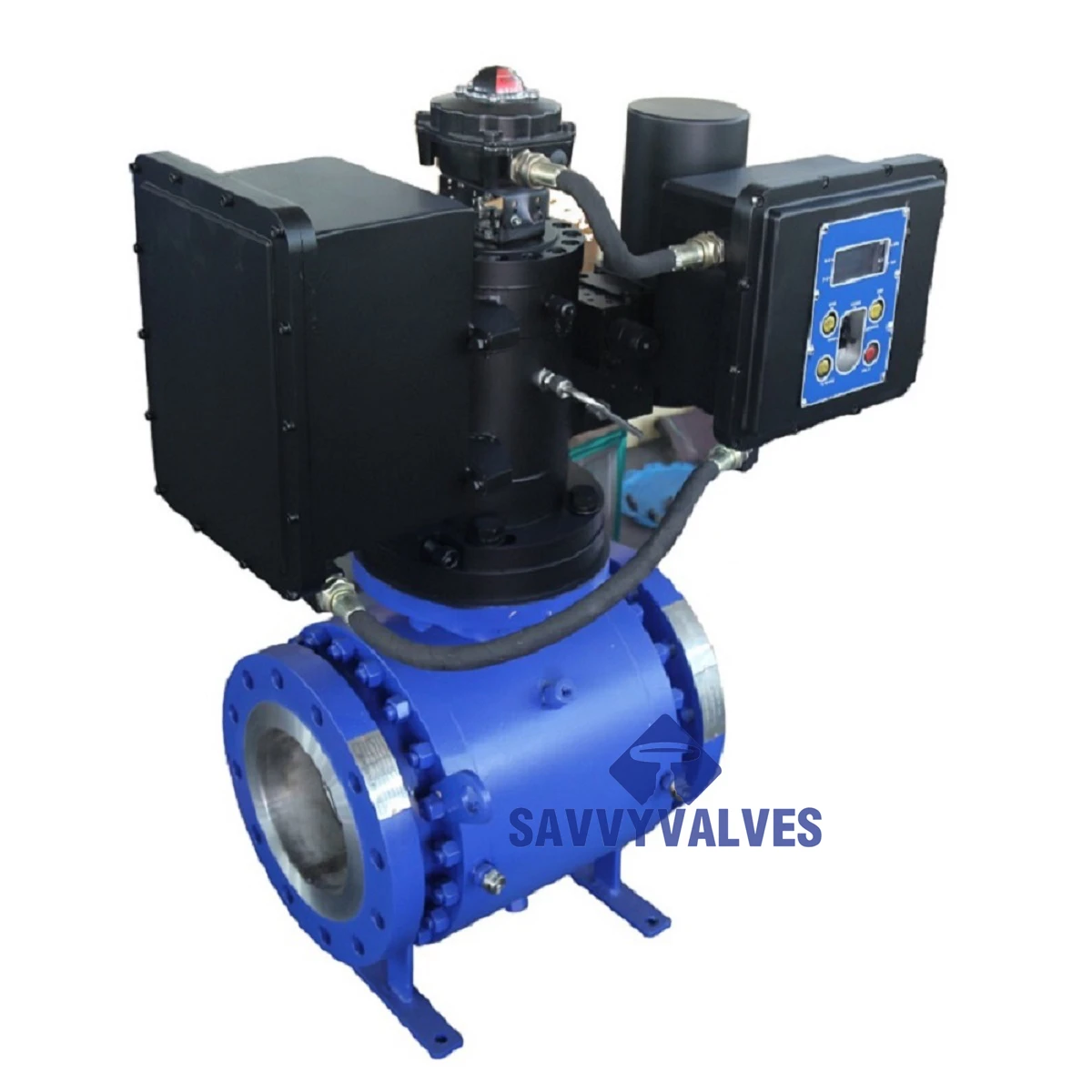Ball Valves
-
SAMPLE SPECIFICATIONS
SIZE:24″
RATING:600LB
BODY AND BONNET : ASTM A105
BALL: ASTM A182 F316
STEM: ASTM A182 F316
SEAT: ASTM A182 F316 COLLAR WITH DEVLON INSERT
SPRING: INCONEL X-750
ACTUATION: GEAR UNIT
-
SAMPLE SPECIFICATIONS
SIZE:6″,12″
RATING:2500LB
BODY AND BONNET : ASTM A216 WCB
BALL: ASTM A182 F316
STEM: ASTM A182 F316
SEAT: ASTM A182 F316 COLLAR WITH DEVLON INSERT
SPRING: INCONEL X-750
ACTUATION: GEAR UNIT
-
SAMPLE SPECIFICATIONS
SIZE:12″
RATING:600LB
BODY AND BONNET : ASTM A216 WCB
BALL: ASTM A182 F316
STEM: ASTM A182 F316
SEAT: ASTM A182 F316 COLLAR WITH DEVLON INSERT
SPRING: INCONEL X-750
ACTUATION: GEAR UNIT
-
Valve Type Trunnion Mounted Ball Valve (API 6D Design)
Mechanical Anchor Dual Trunnion Support (Upper/Lower Fixed Shafts)
Body Construction 2-Piece Bolted Body (ASME B16.34), Side Entry
Bore Type Full Port (100% Pipe ID, Cv=3920 per ISA 75.01)
Pressure Rating ASME Class 150 (PN 25) @ 120°C Max
Pressure-Temp Rating Per ASME B16.34 Curve D -
SAMPLE SPECIFICATIONS
SIZE:8″
RATING:150LB
BODY AND BONNET : ASTM A216 WCB
BALL: ASTM A182 F316
STEM: ASTM A182 F316
SEAT: ASTM A182 F316 COLLAR WITH DEVLON INSERT
SPRING: INCONEL X-750
ACTUATION: GEAR UNIT
-
PHOTO SHOWS SPECIFICATIONS AS BELOW
SIZE:26″/30″/42″
RATING:600LB
BODY AND BONNET : ASTM A694 F60
BALL: ASTM A182 F316
STEM: ASTM A182 F316
SEAT: ASTM A182 F316 COLLAR WITH DEVLON INSERT
SPRING: INCONEL X-750
ACTUATION: GEAR UNIT
-
SAMPLE SPECIFICATIONS
SIZE:20″,30″
RATING:600LB
BODY AND BONNET : ASTM A216 WCB
BALL: ASTM A182 F316
STEM: ASTM A182 F316
SEAT: ASTM A182 F316 COLLAR WITH DEVLON INSERT
SPRING: INCONEL X-750
ACTUATION: GEAR UNIT
-
Size:8″ x 6″
Rating: 600LB
Materials: ASTM A216 WCB body and bonnet
ASTM A182 F316L trims
RPTFE seat
Operator: Single acting spring return pneumatic
-
Size:6″ x 4″
Rating: 1500LB
Materials: ASTM A216 WCB body and bonnet
ASTM A182 F316L trims
RPTFE seat sealing
Operator: Single acting spring return pneumatic, fail close
-
Size:3″ x 2-1/2″
Rating: 1500LB
Materials: ASTM A105N body and bonnet
ASTM A182 F316L trims
RPTFE seat sealing
Operator: Single acting spring return pneumatic, failure close
-
PHOTO SHOWS SPECIFICATIONS AS BELOW
SIZE:48″
RATING:300LB
CONNECTION: BW AS PER ASME B16.25
BODY AND BONNET : ASTM A105
BALL: ASTM A182 F316
STEM: ASTM A182 F316
SEAT: ASTM A182 F316 COLLAR WITH DEVLON INSERT
SPRING: INCONEL X-750
ACTUATION: PNEUMATIC ACTUATOR
-
SAMPLE SPECIFICATIONS
SIZE:8″
RATING:300LB
BODY AND BONNET : ASTM A350 LF2
V-NOTCH BALL: ASTM A182 F316+TCC 90℃ NOTCH
STEM: ASTM A564 17-4PH
SEAT: ASTM A182 F316+TCC
SPRING: INCONEL X-750
ACTUATION: ELECTRIC HYDRAULIC ACTUATOR
A ball valve is a type of quarter-turn valve that controls flow using a hollow, perforated, and pivoting ball inside the valve body. When the ball’s hole is aligned with the pipeline, fluid flows freely; when rotated 90 degrees, the flow is completely blocked. This simple mechanism makes ball valves highly reliable for shutoff and control applications. Ball valves are known for their tight sealing performance, durability, and ease of operation. They can handle high pressure and temperature conditions, and are suitable for gas, liquid, or even corrosive media, depending on the materials used. With minimal pressure drop and fast on-off control, ball valves are widely used in industries like oil and gas, water treatment, chemical processing, and general plumbing. They come in various types such as two-way, three-way, floating, and trunnion-mounted, and can be operated manually, pneumatically, or electrically.

